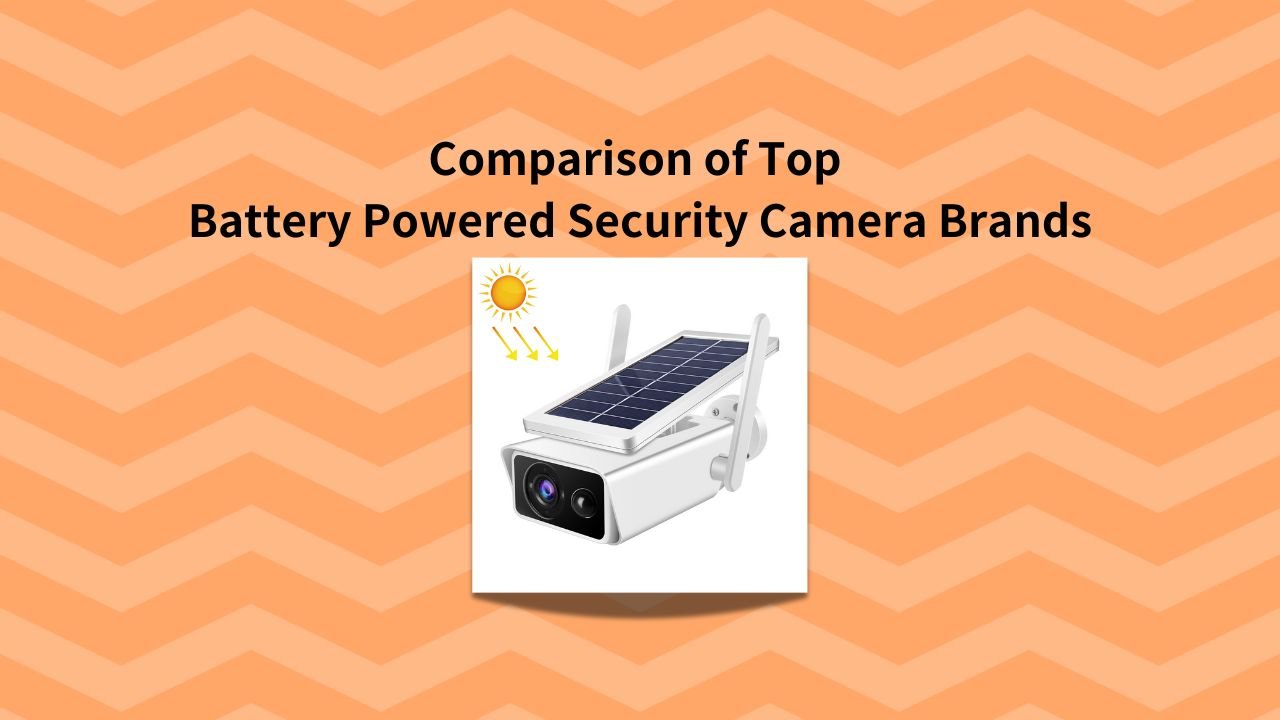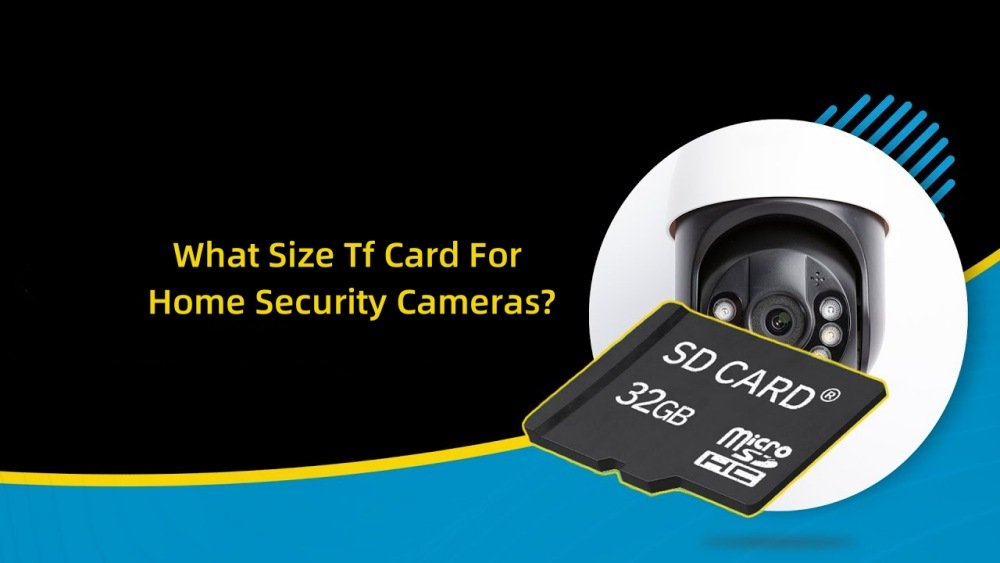Benefits of Having a Home Security System
A home security system is more than just peace of mind—it’s your first defense against intruders and potential threats. By investing in the best home security camera system company, you gain real-time monitoring, motion detection, and instant alerts that keep you informed no matter where you are. Plus, many systems offer 24/7 professional surveillance, ensuring that emergency responders are contacted immediately if anything goes wrong. With burglary rates higher in areas without security systems, installing one not only protects your valuables but can also reduce your homeowner’s insurance premiums. In short, it’s a small investment that provides long-term safety and savings.
Comparison of Best Home Security Camera System Company
When choosing the best home security camera system company or camera, your decision will depend on factors like ease of use, budget, storage options, compatibility with smart home systems, and video quality. Here’s a detailed comparison of various security systems and cameras based on their features, strengths, and weaknesses:
1. SimpliCam – Top Best Home Security Camera System Company
- Features: 24/7 live streaming, motion detection, privacy shutter, and night vision.
- Strengths: Simple setup and integration with SimpliSafe home security systems. It’s an affordable choice with reliable motion detection.
- Weaknesses: Limited video resolution (720p), and no smart home integration outside of SimpliSafe.
- Best for: Those looking for a straightforward, no-frills security camera that integrates with a broader home security system.
2. Lorex – Easiest to Use Security Camera
- Features: 4K ultra HD video, color night vision, two-way audio, and built-in deterrent features like a siren.
- Strengths: Lorex cameras are plug-and-play, making them easy to use for beginners. Their wide range of products suits different needs, from indoor to outdoor surveillance.
- Weaknesses: Pricey compared to other brands, and lacks integrations with major smart home platforms like Google Assistant or Alexa.
- Best for: People who want an easy-to-use system with top-notch video quality.
3. Ring – Top for DIY Installation
- Features: 1080p HD video, motion-activated alerts, two-way talk, and real-time notifications.
- Strengths: Ring is known for its easy installation, with wireless cameras that are designed for DIY enthusiasts. It also integrates seamlessly with Alexa.
- Weaknesses: Subscription required for advanced features like cloud storage. Privacy concerns have been raised due to past security breaches.
- Best for: DIY users who prefer smart home integration with Alexa and easy setup.
4. ADT – Most Complete Security System with Cameras
- Features: Professional monitoring, mobile app control, video doorbells, indoor/outdoor cameras, and smart home integration.
- Strengths: Offers a full-featured security system with professional installation and monitoring. Cameras can be integrated into an overall security system with features like entry sensors, alarms, and automation.
- Weaknesses: High monthly fees for monitoring, long-term contracts, and pricier than DIY options.
- Best for: Homeowners looking for a comprehensive, professionally monitored system with integrated cameras.
5. Wyze Cam – Most Affordable Security Cameras
- Features: 1080p HD video, night vision, motion tracking, and two-way audio.
- Strengths: Extremely affordable with surprisingly high-quality features for the price. Includes free 14-day cloud storage and optional local storage via microSD card.
- Weaknesses: Lacks compatibility with Apple HomeKit and may require more frequent troubleshooting compared to pricier brands.
- Best for: Budget-conscious shoppers who still want reliable home monitoring.
6. Arlo – Top Video Resolution
- Features: 4K UHD resolution, color night vision, motion detection, two-way audio, and smart alerts.
- Strengths: Arlo’s cameras offer some of the best video resolution on the market, and they integrate with Alexa, Google Assistant, and Apple HomeKit.
- Weaknesses: Higher price point, and the best features require a subscription to Arlo Smart.
- Best for: People who prioritize high-quality video resolution and smart home integration.
7. Nest – Most Compatible with Google Home Cameras
- Features: 1080p video, intelligent alerts, 24/7 live streaming, two-way audio, and integration with Google Assistant.
- Strengths: Seamless integration with Google Home ecosystem, making it easy to control and monitor via Google Assistant.
- Weaknesses: More expensive than comparable cameras and full functionality requires a Nest Aware subscription.
- Best for: Google Home users who want an easy-to-integrate camera system.
8. Blink Camera – Top Compact Cameras
- Features: 1080p video, two-way audio, motion detection, and night vision.
- Strengths: Small, battery-operated cameras that are easy to set up and move around. Excellent battery life of up to two years.
- Weaknesses: Lacks advanced features like 4K video or person detection, and cloud storage requires a subscription.
- Best for: Users who need a simple, compact camera for flexible home monitoring.
9. Swann SWDVK-445802V – For Local Video Storage
- Features: 1080p video, local video storage via DVR, and night vision.
- Strengths: Offers reliable local storage, which is ideal for those who want to avoid cloud subscriptions. Provides 1TB of local storage, which is sufficient for most needs.
- Weaknesses: Lacks some advanced features like two-way audio or cloud storage, and setup can be more complicated due to wired connections.
- Best for: Users who want local video storage and don’t want to rely on the cloud.
10. eufy 2K Camera – For Apple HomeKit Integration
- Features: 2K resolution, advanced person detection, two-way audio, and integration with Apple HomeKit.
- Strengths: Perfect for Apple users who want seamless integration with HomeKit. The cameras also offer high video quality and no monthly fees for most features.
- Weaknesses: Limited compatibility with other smart home systems like Alexa or Google Assistant.
- Best for: Apple users who prioritize HomeKit integration and don’t want to pay monthly fees.
11. Zmodo – Greatest Security Camera Selection
- Features: 1080p video, night vision, and motion detection.
- Strengths: Zmodo offers a wide variety of indoor and outdoor cameras, making it easy to find a solution that fits your needs. Most models are affordable.
- Weaknesses: Customer support is often cited as lacking, and cloud storage requires a paid subscription.
- Best for: People who want a wide range of options and customizable security solutions.
12. Ecobee SmartCamera – For Camera with Person Detection
- Features: 1080p video, built-in Alexa, and intelligent person detection.
- Strengths: Ecobee’s smart camera doubles as an Alexa speaker and is ideal for smart home integration. The person detection feature reduces false alerts.
- Weaknesses: Subscription required for recording features and enhanced alerts.
- Best for: Smart home users who want Alexa integration and advanced person detection.
When selecting the best home security camera system company or cctv camera company, there’s no one-size-fits-all solution. Wyze is perfect for those on a budget, while Arlo and Lorex shine with video quality. Ring is great for DIY enthusiasts, while ADT offers full-scale, professional home security. If you’re invested in the Google or Apple ecosystems, Nest or eufy provide seamless smart home integrations. Always consider your specific needs, such as video resolution, storage, and ease of use, before making a decision.
How We Test Home Security Camera Systems?
Testing home security camera systems involves a comprehensive evaluation process to ensure reliability, functionality, and user experience. Here’s an overview of how experts typically test these systems, focusing on identifying the Best Home Security Camera Systems Company:
1. Initial Setup and Installation
- Ease of Installation: Assess whether the system is DIY-friendly or requires professional installation. This includes checking the clarity of instructions and the time taken to set up the system.
- Equipment Check: Confirm that all components (sensors, cameras, alarms) are included and functional upon setup.
2. Basic Functionality Testing
- Sensor Reliability: Test each security device (entry sensors, motion detectors) to ensure they respond correctly to triggers, such as opening doors or detecting movement.
- Alarm Performance: Verify that alarms sound as expected when sensors are triggered, and check notification systems for alerts sent to users.
3. Feature Testing
- Promised Features: Evaluate the functionality of advanced features like video recording, smart alerts, and integration with smart home devices. This includes checking the accuracy of motion detection and the effectiveness of features like facial recognition.
- User Experience: Assess the user interface of the mobile app or control panel, including ease of navigation, responsiveness, and overall design.
4. Real-World Testing
- Duration: Systems are tested in real home environments for at least a week to gauge performance over time.
- Daily Use: Monitor how the system performs during regular activities, including arming/disarming and handling false alarms.
5. Monitoring Service Evaluation
- Response Time: Test the speed and effectiveness of the monitoring service by simulating break-ins or emergencies and assessing how quickly the monitoring center responds.
- Customer Support: Evaluate the quality of customer service by reaching out with inquiries and noting response times and helpfulness.
6. Durability and Design Assessment
- Build Quality: Inspect the physical durability of devices, ensuring they can withstand environmental conditions if used outdoors.
- Aesthetic Appeal: Consider how the system’s design fits into home decor and whether it is discreet or conspicuous.
7. Value and Cost Analysis
- Pricing Structure: Analyze upfront costs, monthly monitoring fees, and any additional charges for features or equipment.
- Comparison with Competitors: Compare the system’s features and pricing against similar offerings to determine overall value.
By following this testing process, experts can deliver thorough insights into the systems that work—and those that don’t—so you can choose the best home security camera system for your needs.
Factors to Consider When Choosing the Best Home Security Camera System Company
When you’re shopping for the best home security camera system company, it’s crucial to choose the best security camera system company for your needs. Here’s a breakdown of key factors you need to weigh before making your decision.
.jpg)
1. Type of System: DIY vs. Professional Monitoring
- DIY Systems: These systems let you install and monitor your home security system independently, often with lower upfront costs and no long-term contracts.
- Professional Monitoring: Installed by experts, these systems provide 24/7 monitoring services. While they come with higher monthly fees, they offer faster emergency response times and often require contracts.
2. Equipment and Features
- Essential Components: Determine the equipment you need, such as door/window sensors, motion detectors, security cameras, and alarms. Larger homes may require additional devices.
- Smart Home Integration: Check if the system integrates with smart home devices like Alexa or Google Home, which can enhance the functionality of your home security system.
3. Monitoring Options
- Decide whether you prefer a self-monitored system or professional monitoring. Many of the best home security systems companies offer mobile app controls, allowing you to receive alerts and monitor your home remotely.
4. Budget Considerations
- Cost of Equipment: Consider the upfront cost of the hardware for your home security system.
- Monthly Fees: Factor in recurring costs for professional monitoring services. Choose the best home security camera system company that fits your budget while still meeting your security needs.
5. Installation Process
- Some systems are designed for easy DIY installation, while others require professional setup. Assess your comfort level with installing the best home security camera system on your own versus hiring a technician.
6. Size and Layout of Your Property
- The size of your home and the number of entry points will influence how many sensors and cameras you need. Larger properties may require outdoor cameras and additional motion sensors for complete coverage.
7. Response Time and Customer Service
- Research the response time of monitoring services provided by the best home security camera systems company and their customer service reputation. Quick and reliable responses are essential in emergencies.
8. Durability and Warranty
- Evaluate the build quality, especially for outdoor equipment, and ensure the system comes with a solid warranty. The best home security camera systems company should offer peace of mind through durable equipment and comprehensive warranties.
By keeping these factors in mind, you’ll be in a better position to choose the best home security camera system company that suits your needs, lifestyle, and budget.






